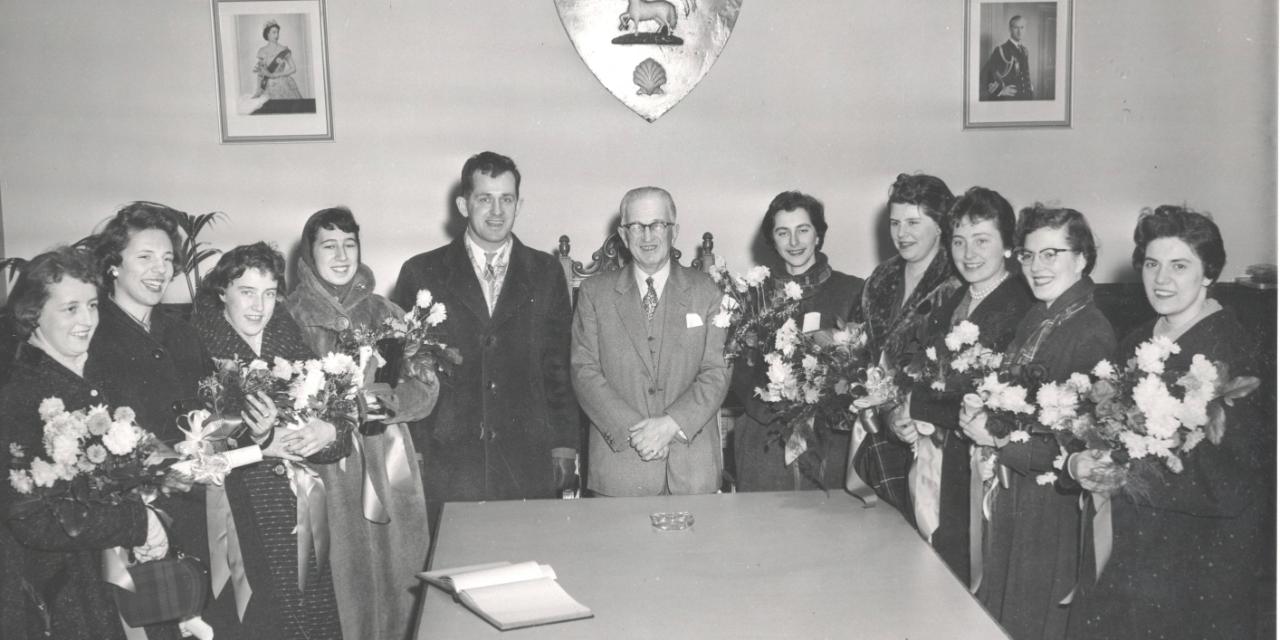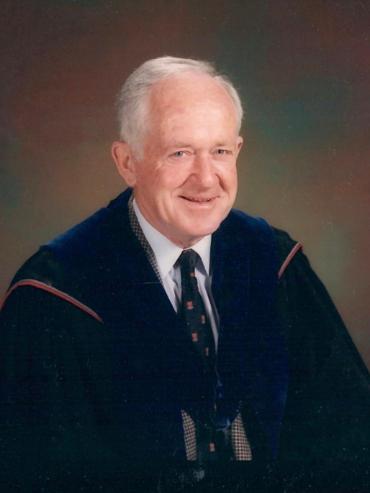From conkers to the Canada Games
As a young child, John Douglas Eaton participated in many sports and excelled in others.
By the age of 12, he was proficient in the popular children’s games of the day — rounders, tin-can cricket, hoist your sails and run, conkers and street hockey, to name a few.
The equipment for these games surrounded him. All that was needed for conkers, for example, were two chestnuts and two pieces of string.
Street hockey was played with homemade sticks and a ball. In the absence of a ball, a frozen lump of horse manure was used. Fine when the weather was cold; not so fine when it warmed up.
Fast forward a couple of decades. Dr. Eaton earned his bachelor of physical education from the University of Toronto in 1948. He returned to the province, joined Memorial University as a faculty member and, in 1953, was appointed director of physical education.
His lifetime commitment to sports in Newfoundland and Labrador had begun.
In addition to academic classes for first-year students, instructional periods in badminton, basketball, bowling, tumbling, swimming and square dancing were made available to all students. They played field hockey and ice hockey.
He was a strong advocate for women in sport and student athletics, helping to build Memorial’s early varsity sports culture.
But that wasn’t enough for Dr. Eaton.
Newly amalgamated high schools equipped with gymnasium facilities were being built throughout the province, and he wanted his students prepared to support their pupils when they entered classrooms. So, in 1955, he established a two-year certificate programme in physical education.
But Dr. Eaton did more than train bodies and coach rules. In the early 1950s, then-president of Memorial Dr. Raymond Gushue noted low morale among students, rising absenteeism and general malaise.
In contrast, the president’s report for 1955–56 notes: “The appointment of a physical director was wise, and we have seen much good of it. It has contributed very directly to the creation of the healthier attitude observable generally in the university.”
Dr. Gushue had it wrong, though. It wasn’t the position — it was the man who filled it.
Dr. Eaton’s approachability and willingness to listen made him a trusted figure for many students navigating university life. His dedication is central to his legacy, remembered not just in the programmes he built but in the way he mentored and uplifted students throughout his career.
Maybe the fact that he supported eliminating the regulation requiring men to wear shirts and ties to class had something to do with it.
Upon reflection in later years, students who knew “da coach” spoke of “unforgettable times spent playing field hockey and basketball with our beloved coach,” his larger-than-life personality and tremendous work ethic.
And what would Dr. Eaton remember?
Most likely the Memorielles.
In 1957, the Memorielles women’s basketball team travelled to a tournament in Nova Scotia. They played Dalhousie, Acadia and two other Halifax teams and swept the tournament, winning all their games.
On arrival in St. John’s, they received a triumphant welcome. They were greeted at the airport by the president, faculty and hundreds of Memorial students. They were given long-stemmed roses and driven in a motorcade, horns honking and streamers fluttering, before being welcomed at city hall by Mayor Harry Mews.
Team captain Carolyn Rompkey (née Pike) later said it was the confidence Coach Eaton instilled in the team that gave them spirit and the will to win — that it all happened because of him.

The 1957 Memorielles women’s basketball team with Dr. Eaton (LLD’94) and Mayor Harry Mews. Photo from Memorial’s Digital Archives Initiative.
Under his guidance, the physical education programme continued to grow, and in 1960, it became a bachelor of physical education degree.
When he stepped down as director of physical education and athletics, he went on to serve as dean of men, director of student affairs, vice-president (student affairs and services), and vice-president and director of alumni affairs and university development.
Given his reputation among students, it’s no surprise that an article in The Muse noted Dr. Eaton “had an uncanny knowledge of student affairs and how students’ minds work which made him an invaluable aide in administration policy and decision making.” High praise, indeed.
For many years, the alumni association inducted select members into the Eaton Society, created to recognize alumni who had made significant contributions to the community, the university and the alumni association.
Today, the J.D. Eaton Award recognizes outstanding volunteer contributions to Memorial University.
But Dr. Eaton was never far from sports.
During the 1960s, he served a term on the Canadian Council on Fitness and Amateur Sport. He was the first chair of the board of governors of the Newfoundland and Labrador Sports Hall of Fame and served as a technical adviser to the 1977 Canada Summer Games.
In 1978, he began a term as chair of the Canada Games Park Commission.
He also made contributions through many community initiatives, including the Red Cross water safety program and the Royal Life Saving Society.
Dr. Eaton was a trailblazer in education and sport. An entire department was built on his vision and leadership. Students memorialized him through enduring scholarships.
And all of Newfoundland and Labrador has him to thank for helping shape the province’s approach to physical education — and for influencing generations of students, teachers and athletes.
